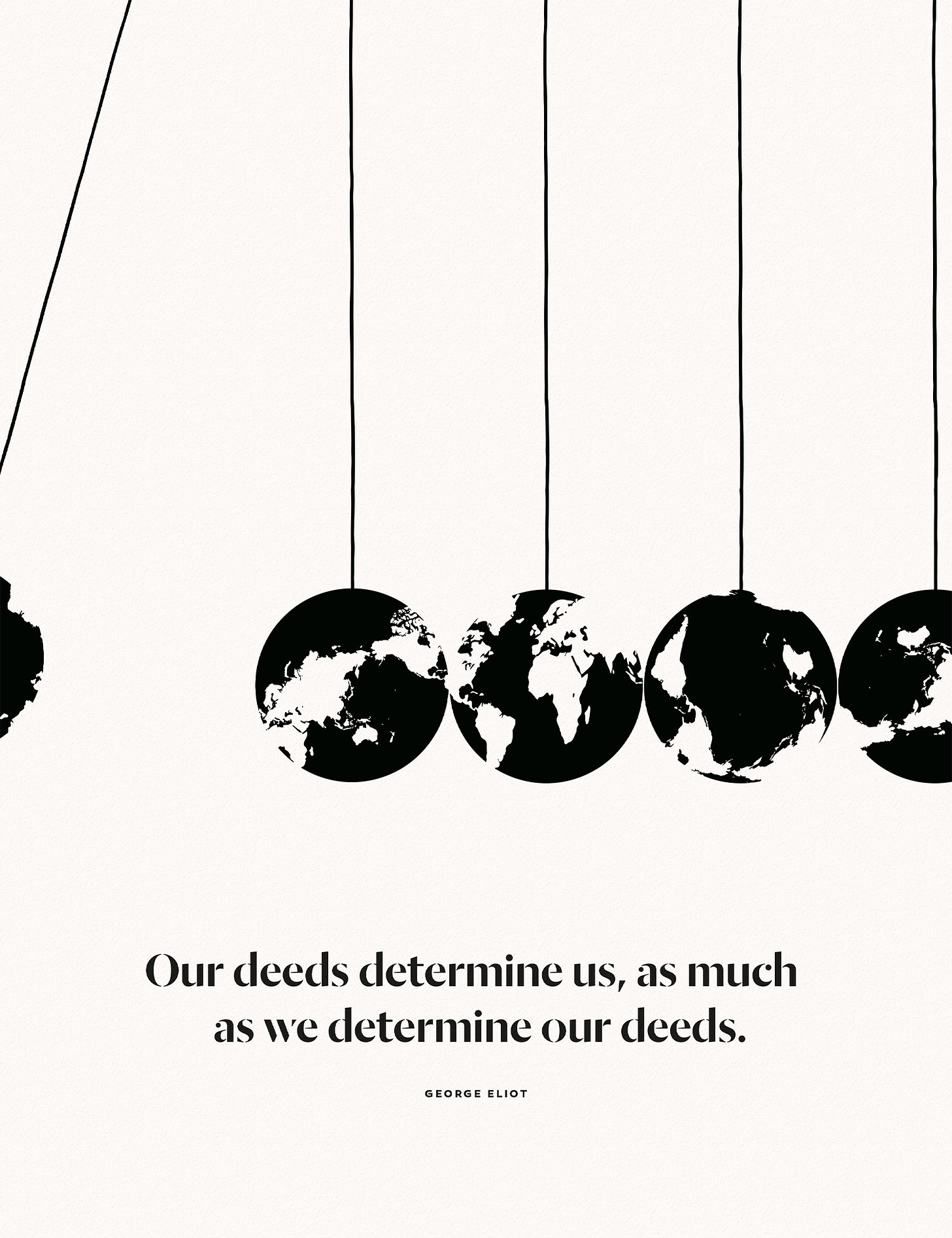
George Eliot on What Time Teaches Us

Our deeds determine us, as much as we determine our deeds, and until we know what has been or will be the peculiar combination of outward with inward facts, which constitutes a man’s critical actions, it will be better not to think ourselves wise about his character.” - George Eliot, Adam Bede
When I was in grade school, writing the date on class assignments five or six times a day, it would take me a good week to get used to writing the new year. At the time is twas something like 1983 (oops 1984). But I still feel that way, as if I’m caught in one last eddy of 2023, waiting for the current to pull me back into the flow.
When I think back on those days, it seems as if time had dilated. Lazy teenage days were like riding down a river that was miles wide and flowed slowly and serenely. We couldn’t care less who was president or what was going on in the rest of the world, when there was no internet to goose our adrenal glands or dissuade us from hanging out in a park, downtown, or in a friend’s basement, or anywhere at all so long as we were having a good time.
I don’t miss junior high, but I do miss that feeling. I don’t know if you’ve noticed, but the river has not been flowing particularly slowly or serenely of late. I would chalk it up to the good-old-days fallacy, but seriously! Admit that for the past seven or eight years, life has been daily spit-take-inducing, Edvard-Munch-scream-inducing wide-eyed, white-knuckled and oarless roaring rapids. It makes it hard to breathe deep, find center and all that, and I’m at least partly convinced that the breakneck speed of crisis is now just the fashion of our times.
And that brings me to George Eliot. Why do we remember her and not other Victorian writers? Was it because George Eliot best captured the daily dunk-under details and latest gossip of mid-1800s? The fashion, the manners, and scandals of the moment? No. While she obviously was partly a product of her time and wrote stories set in her time, they weren’t about her time. They were about being human. And so, she transcended her time. Like all great writers, she reached for the sublime, and for what is universally human, and so despite my inability to relate to the moral struggles of Adam Bede, I can relate to the human struggle around morality as such.
I think about that when I think about how consumed I am with the period-drama of 2024. Some of the themes of the coming year will be eternal, vital and deeply human. But most will eventually become sleepy footnotes, entirely unrelatable to our grandchildren. And instead of getting swept down the river of our latest cultural insanity, I hope that they’ll choose to daydream about hanging out with friends, or sharing their favorite music, or reading a good book, or falling in love.
This year, while shooting the rapids yet again, I hope I have the perspective to see the difference.
SHOP UPDATE: Our 2024 calendars are 50% off while supplies last, and we’re down to just a few more with stands.

